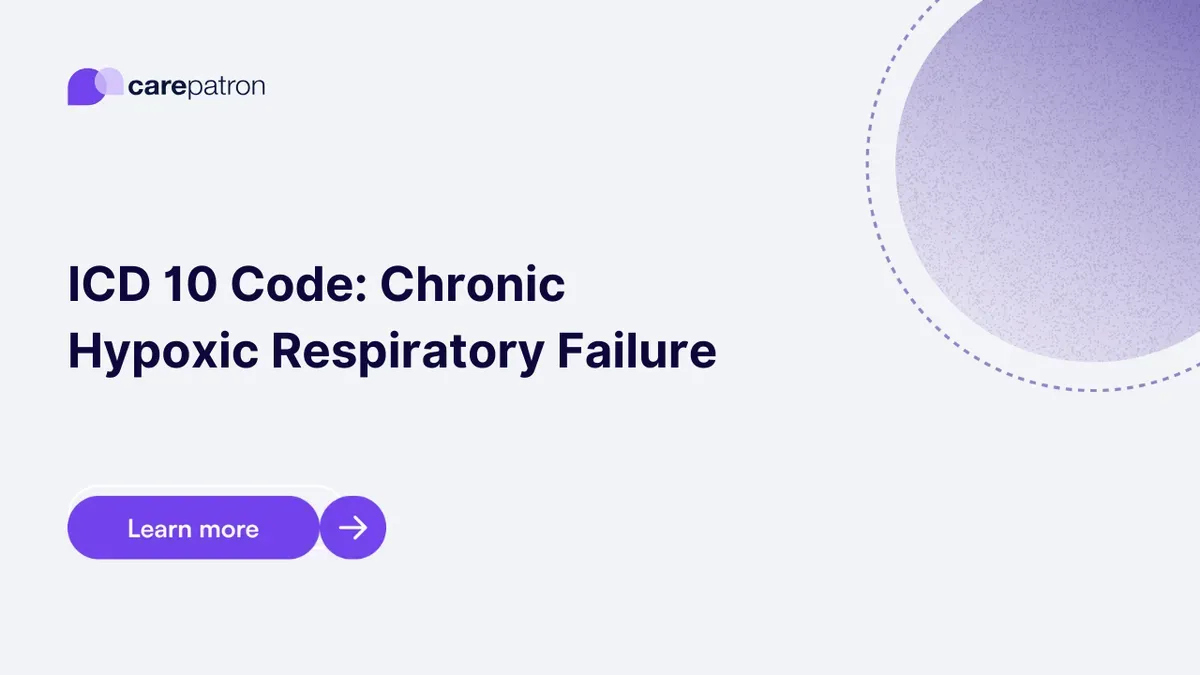
Chronic Hypoxic Respiratory Failure ICD-10-CM Codes
Read this short guide and learn about chronic hypoxic respiratory failure ICD codes you can use. Explore clinical information and billing details here.
Use Code
EHR and practice management software
Get started for free
*No credit card required
Free
$0/usd
Unlimited clients
Telehealth
1GB of storage
Client portal text
Automated billing and online payments
